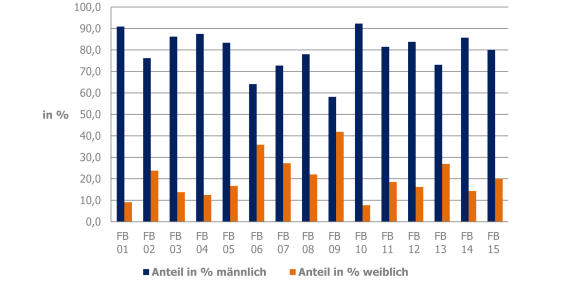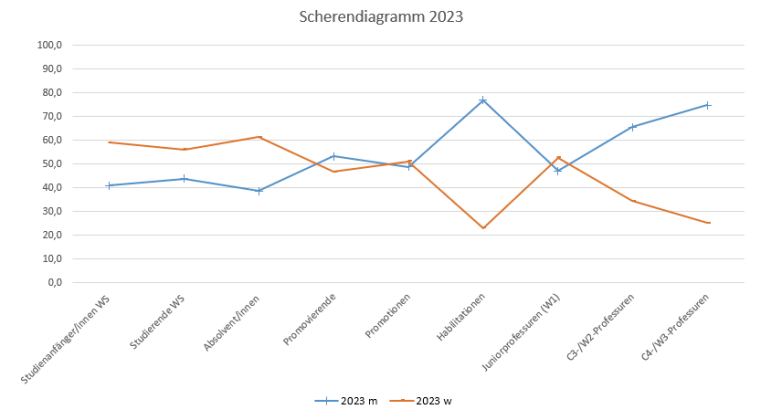Gender equality at the University of Münster – Data analysis
Analysing data is a prerequisite for shaping and formulating successful gender equality policies at the University of Münster. Based on this data, the University can identify which gender equality measures are especially successful and which areas require immediate attention. A remarkable finding in this context was the significant increase in the number of women professors from 13.7 percent in 2004 to 30 percent in 2023. Our analytical work has also highlighted specific areas in which the proportion of women must be increased.




